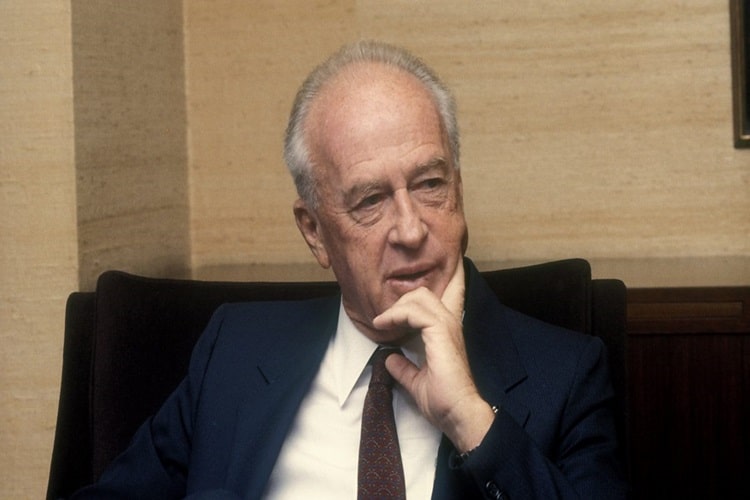Yitzhak Rabin (1 March 1922 – 4 November 1995) was an Israeli politician, statesman and general. He was awarded the Nobel Peace Prize in 1994.
Life and Career
Yitzhak Rabin was born on 1 March 1922, in Shaare Zedek Medical Center, Jerusalem.
Rabin received his education at the Kadoorie Agricultural School and later attended the British Army’s Officer Training School in Cairo during World War II.
Rabin’s military career was distinguished. He served in the Palmach, the elite fighting force of the Haganah (the Jewish underground military organization). He rose through the ranks, eventually becoming Chief of the General Staff of the Israel Defense Forces (IDF) in 1964.
After retiring from the military, Rabin transitioned into politics. He served as the Ambassador to the United States in the late 1960s and later held various government positions, including Minister of Labor, before becoming the Prime Minister of Israel.
Rabin became Prime Minister in 1974, focusing on security and economic issues. He initiated a policy of territorial compromise and attempted to achieve peace with neighboring Arab countries.
Rabin returned to the office of Prime Minister in 1992. During this tenure, he engaged in the Oslo Accords, a landmark peace agreement with the Palestinians, for which he was awarded the Nobel Peace Prize in 1994 along with Shimon Peres and Yasser Arafat.
Yitzhak Rabin passed away on 4 November 1995, in Tel Aviv-Yafo, Israel.
Award and Legacy
Yitzhak Rabin was awarded the Nobel Peace Prize in 1994, along with Shimon Peres and Yasser Arafat, for their efforts in creating the Oslo Accords, which aimed to establish peace between Israel and Palestine.
He is remembered for his determined pursuit of peace in the Middle East, particularly through the Oslo Accords, which marked a significant step in the Israeli-Palestinian peace process.
Rabin remains a symbol of the pursuit of peace in the region. His assassination, tragically at the hands of an extremist opposed to the peace process, served as a stark reminder of the challenges and divisions in achieving peace.
Rabin’s legacy continues to shape the discourse on the Israeli-Palestinian conflict and broader peace negotiations in the Middle East. His willingness to engage in dialogue with the Palestinians and pursue a two-state solution continues to influence discussions on resolving the ongoing conflict.
His memory is honored through various memorials, such as the Yitzhak Rabin Center in Tel Aviv, established to promote his legacy and values of peace, democracy, and tolerance.

